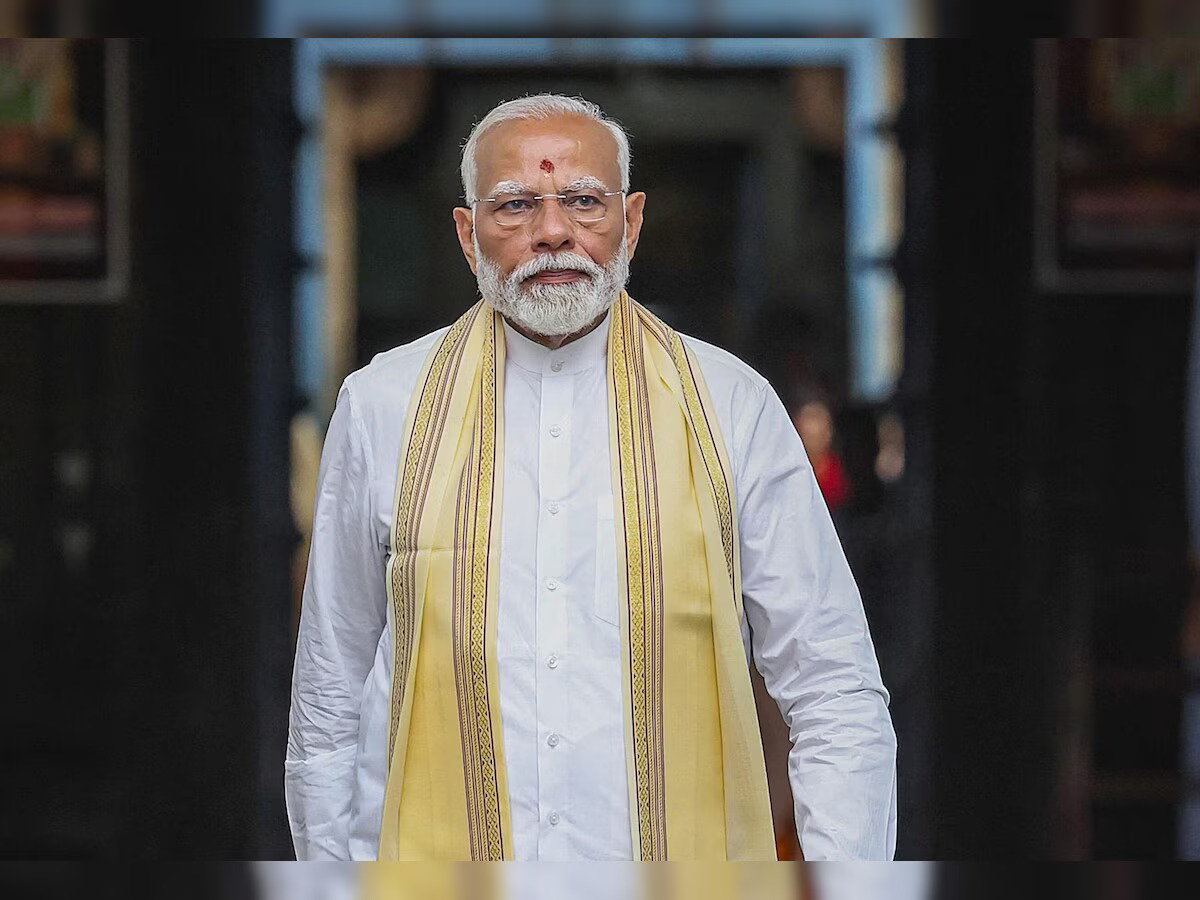Prime Minister Narendra Modi on Thursday inaugurated the redeveloped Deshnok railway station in Rajasthan’s Bikaner district, marking a significant milestone in India’s ongoing railway modernisation drive.
The event, which included prayers at the Karni Mata temple and the flagging-off of the Bikaner-Mumbai Express from Deshnok, also saw the virtual inauguration of 103 redeveloped ‘Amrit Stations’ across 86 districts in 18 states and Union territories, completed at a collective cost of Rs 1,100 crore. These initiatives underscore a strategic national commitment to enhancing connectivity and promoting sustainable, equitable, and eco-friendly urban and regional development. The revamped Deshnok station, notably inspired by local temple architecture, is meticulously designed to cater to the thousands of pilgrims visiting the revered Karni Mata shrine each year. This fusion of cultural aesthetics with modern functionality exemplifies a thoughtful approach to infrastructure development that respects local heritage while providing world-class amenities. Such redevelopments are not merely about upgrading facilities; they are integral to fostering accessible and gender-neutral public spaces, ensuring enhanced safety, comfort, and convenience for all travellers, including women, children, and the elderly.
The inauguration of 103 ‘Amrit Stations’ across the vast expanse of India represents a pivotal component of the nation’s broader vision for rail network revitalisation. By focusing on smaller and medium-sized towns and pilgrim centres, this initiative aims to bring the benefits of modern infrastructure directly to communities beyond major metropolitan hubs. This approach is crucial for promoting equitable regional growth, providing improved access to economic opportunities, education, and healthcare for populations in tier-2 and tier-3 cities, thereby bridging the urban-rural divide and strengthening the socio-economic fabric of diverse regions. Furthermore, these modernised railway stations are conceived with sustainability at their core. Future-ready designs often incorporate green building principles, including energy-efficient lighting, improved ventilation, waste management systems, and the potential for renewable energy integration. By enhancing the efficiency and appeal of rail travel, these upgrades contribute to a significant modal shift away from more carbon-intensive forms of transport. A robust and accessible railway network is fundamental to achieving zero-net carbon cities by reducing vehicular emissions and congestion, leading to cleaner air and a healthier urban environment for all citizens.
The comprehensive scope of these development projects extends beyond railway infrastructure. Prime Minister Modi is also poised to lay the foundation stone and dedicate to the nation multiple development projects worth an estimated Rs 26,000 crore. This substantial fiscal allocation across various sectors reflects a holistic strategy for national progress, where integrated infrastructure development serves as a catalyst for economic growth and societal well-being. Such investments are vital for building resilient communities and ensuring a sustainable future. The strategic focus on pilgrimage tourism infrastructure, as demonstrated by the Deshnok station, also highlights a nuanced approach to economic development. By facilitating easier and more comfortable travel for pilgrims, these redevelopments not only boost local economies through increased tourism but also promote cultural exchange and spiritual journeys. This supports a model of sustainable tourism that minimises environmental impact while maximising socio-economic benefits for local communities.
In essence, the inauguration events in Rajasthan on Thursday underscore India’s accelerated push towards a modern, efficient, and sustainable transport ecosystem. The strategic investment in railway infrastructure, coupled with a broader developmental agenda, aims to foster seamless connectivity, reduce environmental impact, and create more equitable and prosperous cities across the nation. This ambitious vision for a transformed India positions rail as a critical enabler of both economic dynamism and a greener, more inclusive future.
Also Read: Indian Railways To Revamp 500 Stations By 2027


